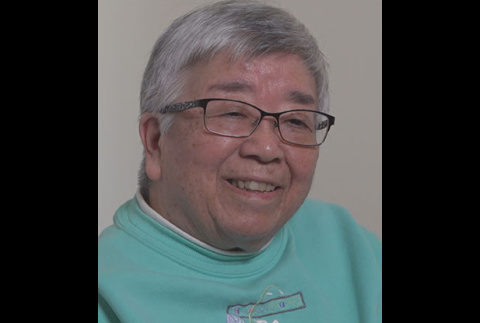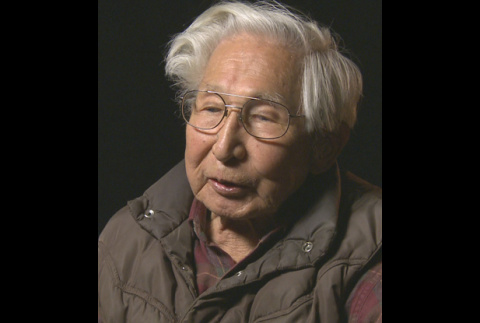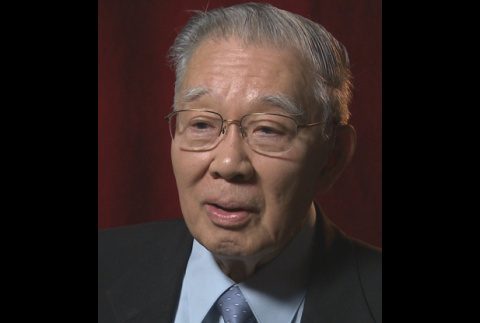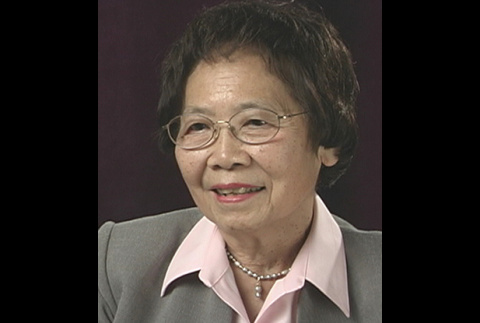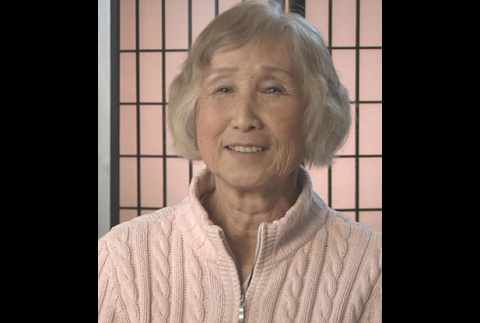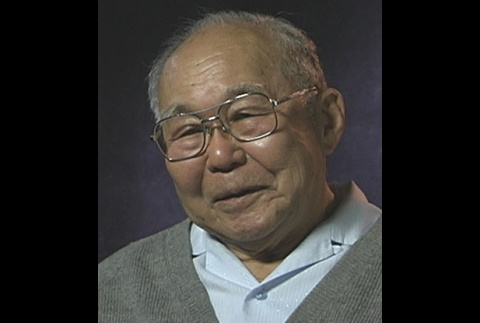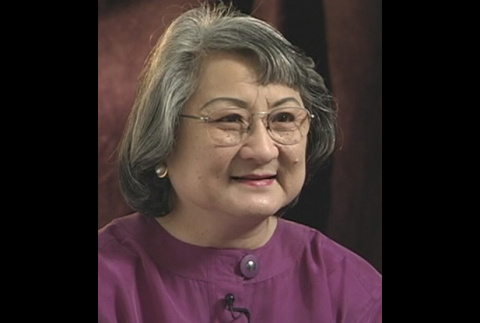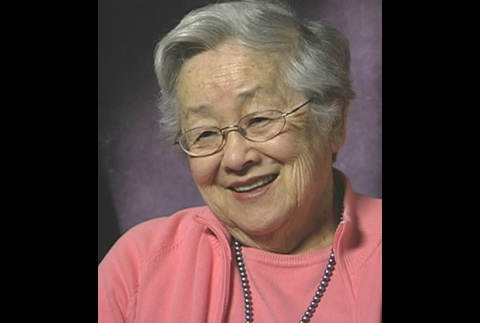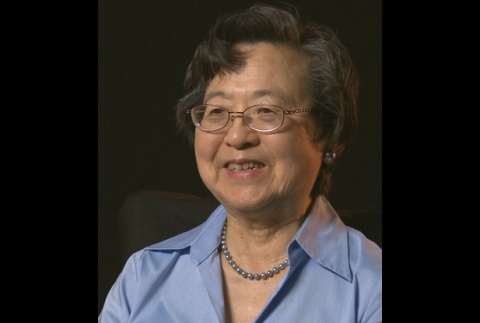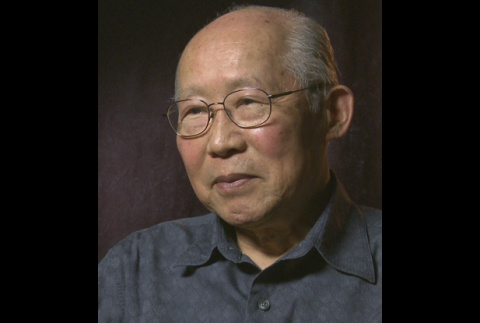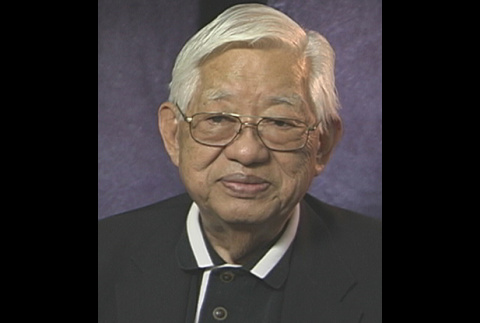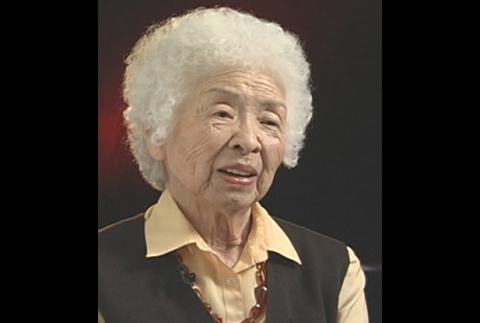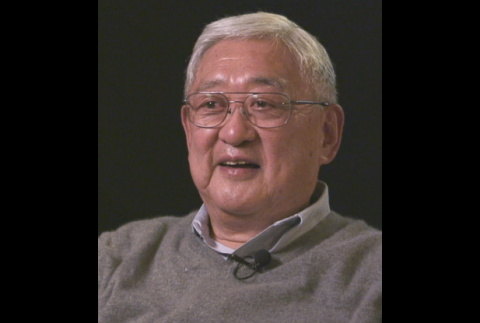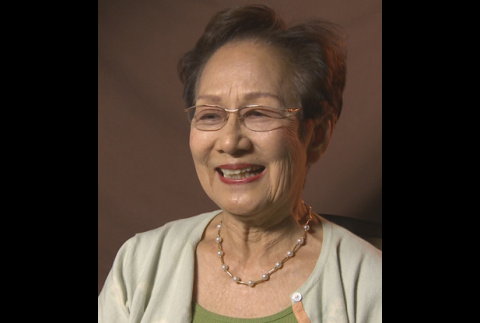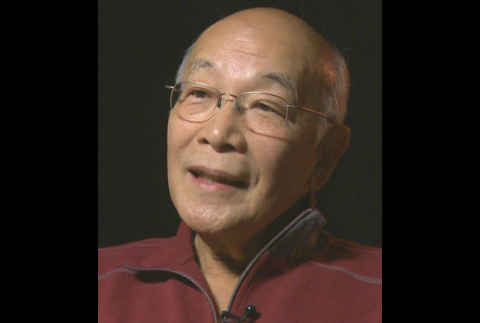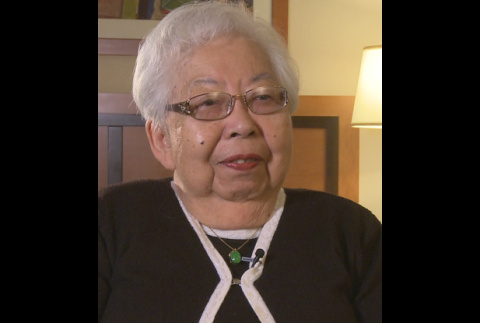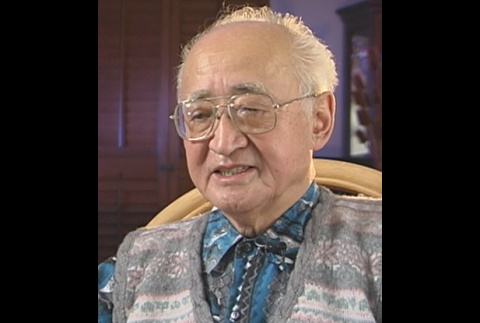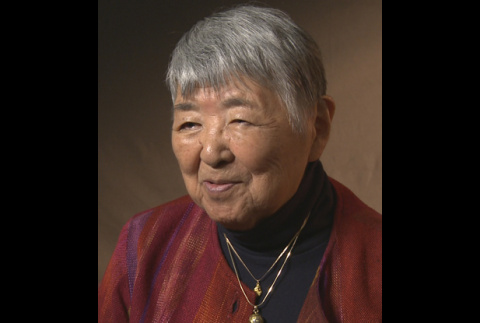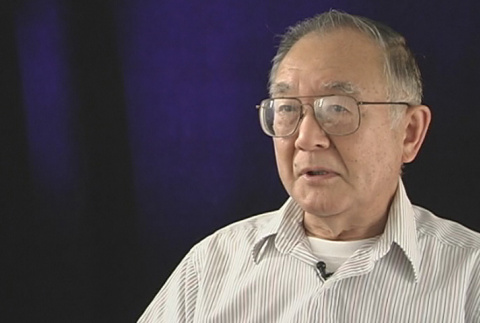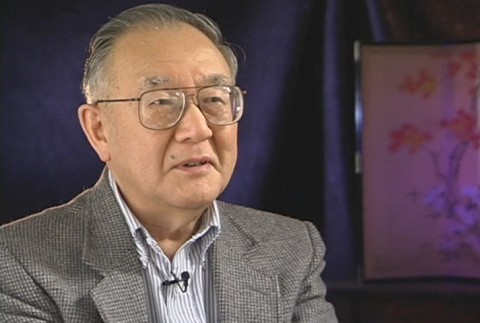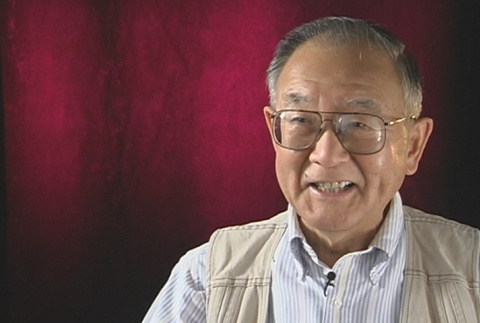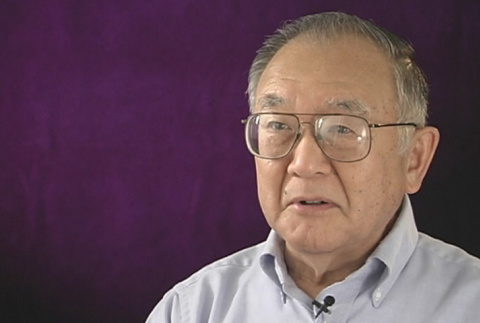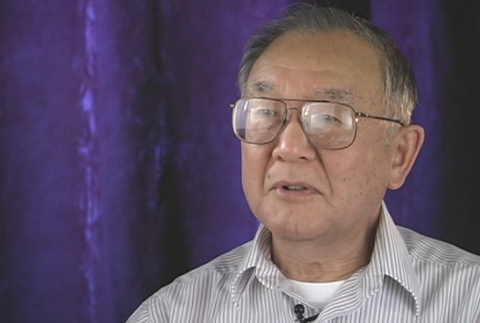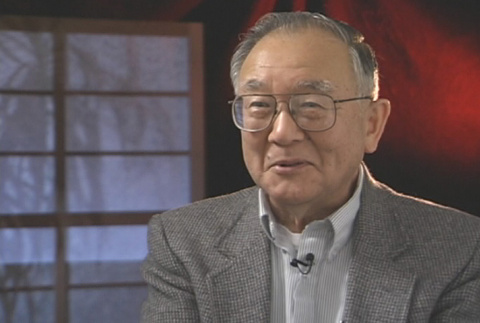248 items
248 items

Narrator Hannah Hirabayashi
Nisei-Sansei female. Born 1938 in Seattle, Washington. Grew up in the town of Christopher, now part of Auburn, Washington, where parents ran a grocery store. After the bombing of Pearl Harbor, father was arrested by the FBI and sent to the Fort Missoula internment camp, Montana. The rest of the family went to the Puyallup Assembly …

Narrator Warren Koichi Suzuki
Nisei male. Born February 27, 1921, in Seattle, Washington. At age ten, was sent to Japan to live and attend school. Returned to Seattle prior to World War II. During the war, was removed to the Puyallup Assembly Center, Washington, and the Minidoka concentration camp, Idaho. Answered "no-no" on the so-called "loyalty questionnaire" and was transferred …

Narrator Eugene Tatsuru Kimura
Nisei male. Born September 19, 1922, in Sheridan, Wyoming. At a young age, moved to Seattle, Washington, and spent most of childhood there. Was enrolled at the University of Washington when Japan bombed Pearl Harbor on December 7, 1941. Removed to the Puyallup Assembly Center, Washington, before returning with family to Sheridan. Attended the University of …

Narrator May Y. Namba
Nisei female. Born May 12, 1922, in Seattle, Washington. Spent brief time in Japan as a young child, then returned to Seattle. Worked as a clerk in the Seattle School District until the onset of World War II, then was forced to resign under pressure from parent groups. Removed with family to Puyallup Assembly Center, Washington, …

Narrator Etsuko Ichikawa Osaki
Nisei female. Born February 19, 1931, in Fresno, California. Family moved to Seattle, Washington, where father became minister of the Seattle Buddhist Temple. During the war, removed to the Puyallup Assembly Center, Washington, and Minidoka concentration camp, Idaho. Transferred to the Crystal City internment camp, Texas, to be reunited with father, who was arrested by the …

Narrator Art Abe
Nisei male. Born June 12, 1921, in Seattle, Washington. Grew up in an area of Seattle with few other Japanese Americans, and was attending the University of Washington when Japan bombed Pearl Harbor. Removed to the Puyallup Assembly Center, Washington, and the Minidoka concentration camp, Idaho. Left Minidoka several times on temporary work leave to work …

Narrator Fumiko Uyeda Groves
Nisei female. Born September 9, 1933, in Seattle, Washington. Parents operated a store in the Sanitary Market (now known as the Pike Place Market). Father was very active in kenjinkai (prefectural organization) activities, both before and after World War II. Spent prewar childhood in and among Seattle's Japanese American community. Incarcerated at the Puyallup Assembly Center, …

Narrator Kajiko Hashisaki
Nisei female. Born March 27, 1924, and raised in Seattle, Washington. After the bombing of Pearl Harbor, was removed to the Puyallup Assembly Center, Washington, and the Minidoka concentration camp, Idaho. Left Minidoka in 1943 to attend school in St. Paul, Minnesota. Married in 1945, and lived in Japan for sixteen months before returning to the …

Narrator Margaret Junko Morita Hiratsuka
Nisei female. Born July 22, 1928, in Seattle, Washington. Father ran a prominent hotel which was frequently patronized by visiting Japanese dignitaries. Father was picked up by the FBI on December 7, 1941. During the war, removed with family to the Puyallup Assembly Center, Washington, and the Minidoka concentration camp, Idaho. After leaving camp, moved to …

Narrator Satoru Ichikawa
Nisei male. Born November 2, 1929, in Fresno, California. Moved with family at a young age to Seattle, Washington, where father was the minister of the Seattle Buddhist Temple. Father was arrested by the FBI following the bombing of Pearl Harbor, and removed to various Department of Justice internment camps. The rest of the family was …

Narrator Gerald L. Beppu
Sansei male. Family owned Linc's Tackle, a longtime Japanese American business in Seattle, Washington. Prior to World War II, father became the owner of Togo's Tackle shop. During the war, removed to the Puyallup Assembly Center, Washington, and the Minidoka concentration camp, Idaho. While the family was in camp, their prewar insurance agent paid the premiums …

Narrator Ed Tsutakawa
Nisei male. Born May 15, 1921, in Seattle, Washington. Spent much of childhood in Japan, returning to the U.S. at the age of fifteen. Began attending the University of Washington before being removed to Puyallup Assembly Center, Washington, and Minidoka concentration camp, Idaho. Created a series of art pieces depicting camp life. Moved to Spokane, Washington, …

Narrator Fumiko M. Noji
Nisei female. Born October 13, 1909, in Bellingham, Washington. Lost her United States citizenship when she married an Issei through an arranged marriage. Before 1920, her husband's family established Columbia Greenhouse, one of the first Japanese American-owned greenhouse businesses. Incarcerated at Puyallup Assembly Center, Washington, and Tule Lake concentration camp, California. Husband was held by the …

Narrator James Nishimura
Nisei male. Born February 6, 1930, in Seattle, Washington. Following the bombing of Pearl Harbor, was removed to the Puyallup Assembly Center, Washington, and Minidoka concentration camp, Idaho. While in camp, was allowed to leave to attend high school for one year in the nearby town of Eden, Idaho. After leaving camp, Mr. Nishimura moved to …

Narrator Yae Aihara
Nisei female. Born August 18, 1925 in Tacoma, Washington. Raised in Seattle, Washington, where family operated a grocery store. Attended Washington Grammar School and Garfield High School in Seattle. Following the bombing of Pearl Harbor, father was arrested by the FBI and sent to Missoula internment camp, Montana. Family was removed to Puyallup Assembly Center, Washington, …

Narrator Kaz T. Tanemura
Male, Issei-han. Born April 27, 1928, in Japan. As an infant, came to the U.S. where parents had previously immigrated. Family ran a hotel in Seattle's Pioneer Square neighborhood. After the bombing of Pearl Harbor, removed to the Puyallup Assembly Center, Washington, and the Minidoka concentration camp, Idaho. After the war, returned to Seattle, finished high …

Narrator Hannah Lai
Nisei female. Born April 11, 1923, in Seattle, Washington. Grew up in Seattle, where parents ran a hotel. Went to live in Japan for several years prior to World War II. During the war, removed to the Puyallup Assembly Center, Washington, and the Minidoka concentration camp, Idaho. While in Minidoka, recruited to teach elementary school, and …

Narrator Toru Sakahara
Nisei male. Born September 19, 1916, in Fife, Washington. During World War II, incarcerated at Puyallup Assembly Center, Washington, and Minidoka concentration camp, Idaho. Resettled during the war to Salt Lake City, Utah, and returned to Seattle after the end of World War II. Mr. Sakahara worked on behalf of individuals filing claims for restitution under …

Narrator Aya Uenishi Medrud
Nisei female. Born April 9, 1925, in Malden, Washington. Grew up in Seattle, Washington, before being removed with family to the Puyallup Assembly Center, Washington, and the Minidoka concentration camp, Idaho. From Minidoka, relocated with family to Utica, New York. Worked in Japan for the U.S. Army of Occupation, and for the Tokyo General Army Hospital …
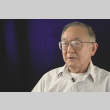
vh
Henry Miyatake Interview IV (ddr-densho-1000-56)
Nisei male. Born April 28, 1929, in Seattle, Washington. Incarcerated at Puyallup Assembly Center and Minidoka concentration camp, Idaho. Had some key childhood experiences with discrimination that made him a self-described, "independent thinker," and later, an influential figure in the Japanese American community. While a teenager in camp, he wrote and defended an essay criticizing the …
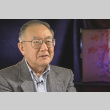
vh
Henry Miyatake Interview I (ddr-densho-1000-53)
Nisei male. Born April 28, 1929, in Seattle, Washington. Incarcerated at Puyallup Assembly Center and Minidoka concentration camp, Idaho. Had some key childhood experiences with discrimination that made him a self-described, "independent thinker," and later, an influential figure in the Japanese American community. While a teenager in camp, he wrote and defended an essay criticizing the …
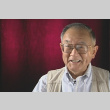
vh
Henry Miyatake Interview V (ddr-densho-1000-57)
Nisei male. Born April 28, 1929, in Seattle, Washington. Incarcerated at Puyallup Assembly Center and Minidoka concentration camp, Idaho. Had some key childhood experiences with discrimination that made him a self-described, "independent thinker," and later, an influential figure in the Japanese American community. While a teenager in camp, he wrote and defended an essay criticizing the …
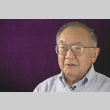
vh
Henry Miyatake Interview III (ddr-densho-1000-55)
Nisei male. Born April 28, 1929, in Seattle, Washington. Incarcerated at Puyallup Assembly Center and Minidoka concentration camp, Idaho. Had some key childhood experiences with discrimination that made him a self-described, "independent thinker," and later, an influential figure in the Japanese American community. While a teenager in camp, he wrote and defended an essay criticizing the …
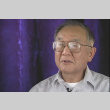
vh
Henry Miyatake Interview VI (ddr-densho-1000-58)
Nisei male. Born April 28, 1929, in Seattle, Washington. Incarcerated at Puyallup Assembly Center and Minidoka concentration camp, Idaho. Had some key childhood experiences with discrimination that made him a self-described, "independent thinker," and later, an influential figure in the Japanese American community. While a teenager in camp, he wrote and defended an essay criticizing the …
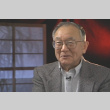
vh
Henry Miyatake Interview II (ddr-densho-1000-54)
Nisei male. Born April 28, 1929, in Seattle, Washington. Incarcerated at Puyallup Assembly Center and Minidoka concentration camp, Idaho. Had some key childhood experiences with discrimination that made him a self-described, "independent thinker," and later, an influential figure in the Japanese American community. While a teenager in camp, he wrote and defended an essay criticizing the …
